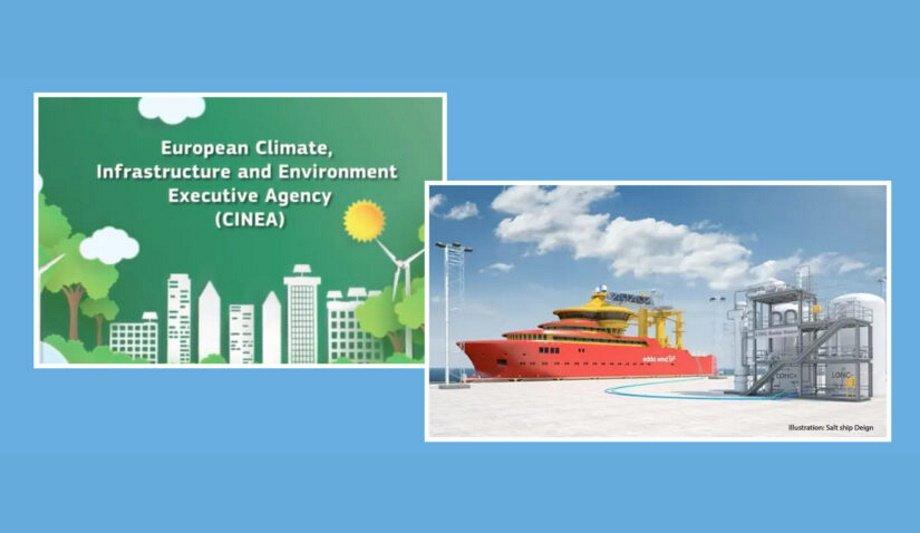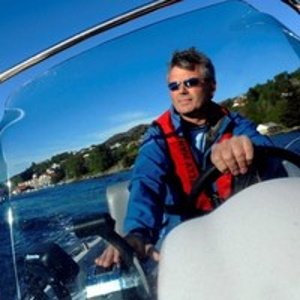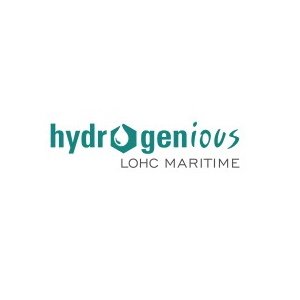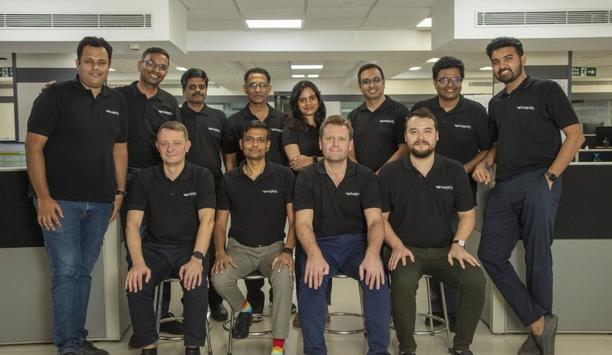European Union - EU grants the Ship-aH2oy project EUR 15 million in funds to equip an offshore wind vessel with a sustainable and scalable solution for power and heat generation.
With 17 partners from 7 European countries, the project aims to introduce high-temperature solid oxide fuel cells (SOFC) and liquid organic hydrogen carrier (LOHC) technology for marine use. In combination with efficient heat integration, this will result in a scalable, safe, and sustainable power and heat generation system on board ships.
Realising green maritime operations
Edda Wind is a globally renowned and market leading C/SOV operator
To demonstrate the technology, a 1 MW hydrogen power system, consisting of a fuel cell module and a hydrogen release unit, is intended to be installed onboard a new service operation vessel (C/SOV).
Edda Wind is a globally renowned and market leading C/SOV operator. Their new fleet of C/SOVs for offshore wind operations is all designed with spare room for the future installation of hydrogen power systems up to 3 MW.
Ship-aH2oy project
“We are thrilled to be a part of Ship-aH2oy and to have the opportunity to demonstrate this cutting-edge technology onboard one of our vessels. With the support from EU and our excellent consortium partners, we are ready to take the next step toward zero-emission maritime operations for offshore wind farms,” says Kenneth Walland, the Chief Executive Officer (CEO) of Edda Wind.
At a later stage, the project will also include a replication study for integrating the power system on board a passenger ship operating on coastal waters. The implementation and demonstration will prove that the concept developed during the project is scalable beyond the 3 MW level.
Novel hydrogen technology
Liquid organic hydrogen carrier (LOHC) adds a new way of handling hydrogen onboard ships in contrast to the established technologies. Instead of using gaseous or liquid hydrogen, hydrogen is chemically bound to a carrier.
The carrier chosen in this project is an industrially available thermal oil, benzyl toluene, which can be used to store and transport large amounts of hydrogen within the existing fossil fuel infrastructure. This LOHC solution also significantly increases the safety onboard as the carrier oil is non-explosive.
Hydrogen release unit onboard the ship
A hydrogen release unit onboard the ship releases the hydrogen from the LOHC into the fuel cell
A hydrogen release unit onboard the ship releases the hydrogen from the LOHC into the fuel cell. The waste heat from the SOFC will be recovered for the hydrogen release unit as well as the ship’s heating needs.
In this way, a high system efficiency can be achieved. In combination with the safety and handling advantages of LOHC, this makes it a very promising emission-free fuel.
Deploying liquid organic hydrogen carrier technology
Dr. Caspar Paetz, the Chief Technology Officer (CTO) at Hydrogenious LOHC Technologies, said “The use of liquid organic hydrogen carrier technology in this project is a potential game-changer for the maritime industry’s accelerated transition to clean energy.”
He adds, “The LOHC solution applied enables a superior safe and efficient way to store and transport hydrogen, proven in stationary systems. We are thrilled to bring this innovative tech on the water and start testing it as main power for the vessel, demonstrating its capabilities in this groundbreaking project.”
Broad partnership with a clear goal
The project brings together 17 partners spanning the maritime sector from research, technology, and design to ship builders, owners, and operators. Their joint expertise and strong commitment to realize zero-emission shipping forms the basis of Ship-aH2oy.
“This project is a great example of the kind of innovation and collaboration that is needed to bring clean energy solutions to the maritime sector. We are excited to work with our partners to demonstrate the potential of combining high-temperature fuel cells and LOHC technology as a safe and scalable solution for zero-emission shipping,” says Project Coordinator - Jaana Viitakangas, Senior Scientist at VTT.
Transition to clean energy solutions in the maritime sector
The transition to clean energy solutions in the maritime sector requires bold thinking and collaboration"
The European Climate Infrastructure and Environment Executive Agency (CINEA) have funded the project with EUR 15 million over a five-year period.
“The transition to clean energy solutions in the maritime sector requires bold thinking and collaboration. Ship-aH2oy is a perfect example of this, as it brings together cutting-edge technology and industry expertise to demonstrate a new technology with great potential. We are excited to see the results of this project and its impact on the maritime industry,” says Project Officer - Vladimir Cid-Bourie at CINEA.
Key facts: Ship-aH2oy project
- Project period: January 2023 to December 2027
- Funding: €15 million
- Partners: VTT, Edda Wind, Østensjø Rederi, Johannes Østensjø DY, Hydrogenious LOHC Maritime, Hydrogenious LOHC Technologies, Friedrich-Alexander-Universität Erlangen-Nürnberg, Siemens Energy, DNV Hellas, Engitec, Demokritos, Gondan, Deltamarin, Teknotherm, ANEK, National Technical University of Athens
Highlights:
- Introduces a safe and efficient way to use hydrogen as fuel for ships in the form of liquid organic hydrogen carrier (LOHC) to achieve zero carbon emissions.
- Achieves high system efficiency through the combined use of LOHC, high-temperature solid oxide fuel cells (SOFC) and efficient heat integration.
- Aims to demonstrate the technology on board an existing and available ship, a service operation vessel (C/SOV) for zero-emission offshore wind operations.
- Includes a replication study for the developed SOFC/LOHC system allowing easy replication in other and larger ships, including ROPAX-vessels.














